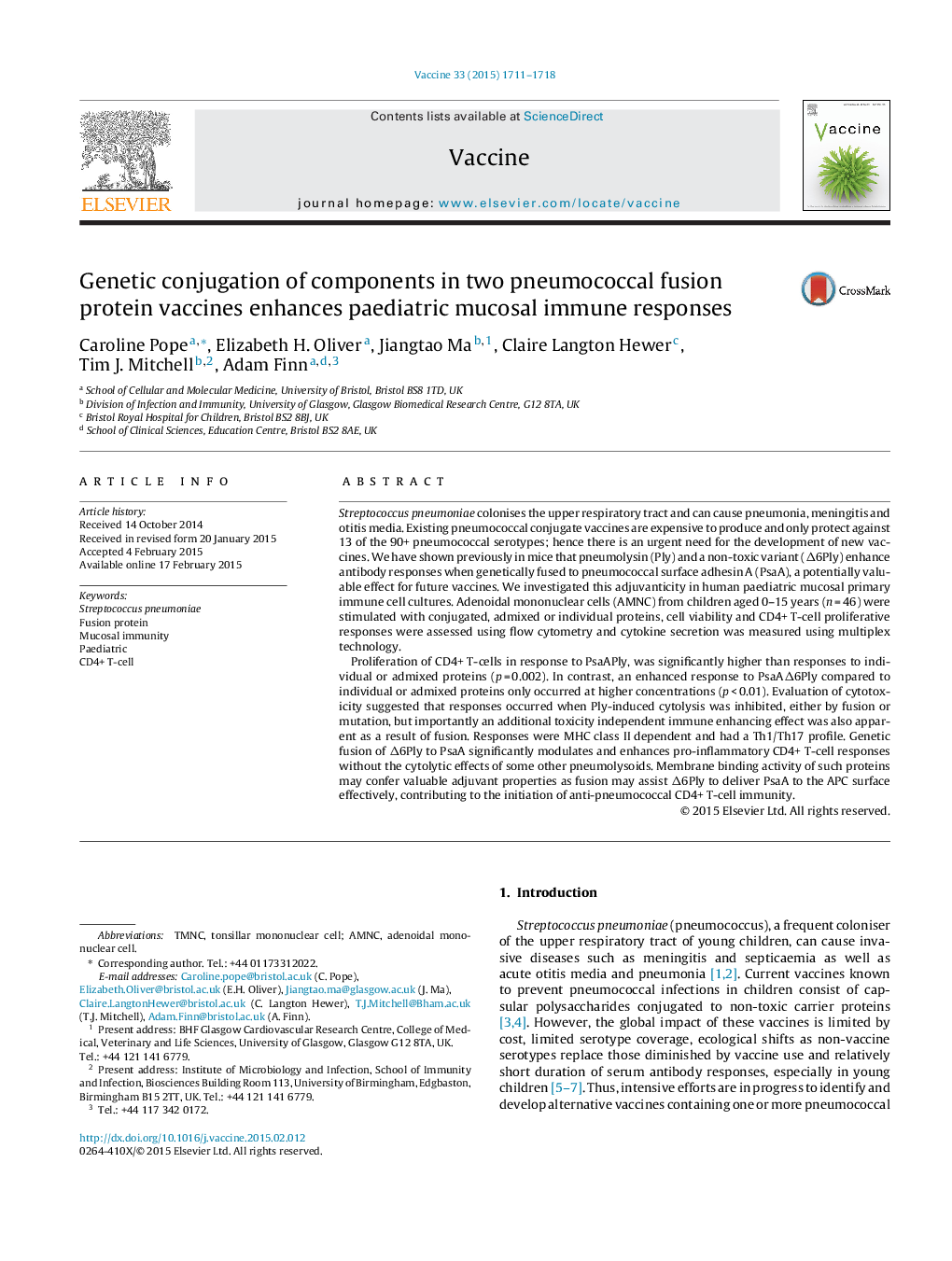| Article ID | Journal | Published Year | Pages | File Type |
|---|---|---|---|---|
| 10964506 | Vaccine | 2015 | 8 Pages |
Abstract
Proliferation of CD4+ T-cells in response to PsaAPly, was significantly higher than responses to individual or admixed proteins (p = 0.002). In contrast, an enhanced response to PsaAÎ6Ply compared to individual or admixed proteins only occurred at higher concentrations (p < 0.01). Evaluation of cytotoxicity suggested that responses occurred when Ply-induced cytolysis was inhibited, either by fusion or mutation, but importantly an additional toxicity independent immune enhancing effect was also apparent as a result of fusion. Responses were MHC class II dependent and had a Th1/Th17 profile. Genetic fusion of Î6Ply to PsaA significantly modulates and enhances pro-inflammatory CD4+ T-cell responses without the cytolytic effects of some other pneumolysoids. Membrane binding activity of such proteins may confer valuable adjuvant properties as fusion may assist Î6Ply to deliver PsaA to the APC surface effectively, contributing to the initiation of anti-pneumococcal CD4+ T-cell immunity.
Related Topics
Life Sciences
Immunology and Microbiology
Immunology
Authors
Caroline Pope, Elizabeth H. Oliver, Jiangtao Ma, Claire Langton Hewer, Tim J. Mitchell, Adam Finn,
